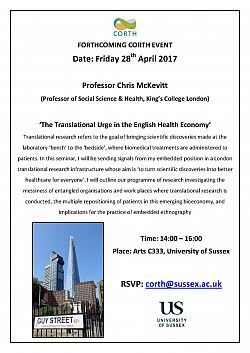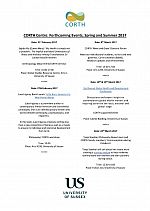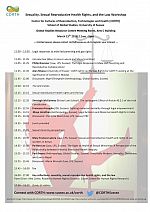CORTH Autumn / Winter 2025 events:
CORTH Research Conversation: 'Research Highlights: hearing from our advisors’
Date: 3rd December, 1 - 2.30pm
CORTH members were treated to a special introductory seminar with recently appointed Advisory Board member Astrid Blystad. Astrid is one of many new Advisory Board members and this December she shared her research, speaking on the topic of ‘Organizational and political factors that shape the production and reception of quantification: the case of maternal death reporting in Eastern Africa.’
Other members of the newly created Advisory Board include Chi Eziefula (Senior Lecturer in Infection at Brighton & Sussex Medical School and an Honorary Consultant in Infectious Diseases and Microbiology at Brighton and Sussex University Hospitals NHS Trust), Ulla McKnight (Assistant Professor in Sociology at the University of Sussex in the School of Law, Politics and Sociology and Criminology), Beth Mills (Associate Professor in the Anthropology and International Development Departments, University of Sussex); Hayley MacGregor (Professor of Medical Anthropology and Global Health at the Institute of Development Studies at the University of Sussex), Marianna Iliadou (Assistant Professor in Law in the School of Law, Politics and Sociology, University of Sussex), Silvia De Zordo (a social anthropologist, Senior Researcher (ERC & Ramón y Cajal) at the University of Barcelona), Paula Baraitser (Senior Lecturer/Consultant at King's College London and King's College Hospital) and Astrid Blystad (Professor at the Centre for International Health, Department of Global Public Health and Primary Care, University of Bergen).
CORTH Conversations: Reproductive freedom as marronage: illegal abortion and the pursuit of safety in Lagos State, Nigeria with Laurenne Ajayi
Date: 19th November, 1 - 2.30pm
Abortion law, rights and practice present a number of conflicts and contradictions in the context of Nigeria. Having ratified the Maputo Protocol, Nigeria subscribes to the groundbreaking regional right to abortion, yet domestic and state law remain restrictive, proscribing abortion in almost all circumstances and stipulating harsh penalties for those who fall foul. This, however, is not reflected in on-the-ground realities, which are far more complex: across all planes of this medically plural context, abortion is prevalent. The safety of these procedures, however, is contingent on circumstance, often resulting in devastating outcomes. Rights, here, remain on paper.
In the aftermath of rights critique, Laurenne Ajayi seeks to theorise how locally-acted, embodied modes of resistance are securing both reproductive freedom and safety in Lagos State. Drawing on fieldwork conducted in 2023, she found that while illegal abortions were historically (and oftentimes still are) unsafe, medication abortion represents a revolution in safety, and this presents just one of the methods harnessed by both the formal and informal networks who seek to create pathways to accessible reproductive healthcare. To do this Laurenne developed a concept of reproductive freedom as marronage, contending that in legally and socially restrictive contexts, reproductive freedom may be found not in the heralded landscapes of rights or justice, nor the recognised infrastructure of mainstream medicine, but the murky (il)legality of acts of reproductive resistance which make maroons of those who refuse to comply with reproductive norms.
Laurenne is a CHASE-funded doctoral researcher in the School of Law. Her research is focused on sexual and reproductive health and rights in West Africa, considering the impact (or lack thereof) of the Maputo Protocol's radical right to abortion and the ways in which reproductive freedom might be reconceived and secured.
Doctoral Research Fora
Date: 6th November, 1pm - 3pm
Part of the popular CORTH Doctoral Fora series, the Centre was joined by new and existing CORTH members as they shared and discussed their research to an audience of follow students and faculty. This Autumn we welcomed Arushi Sahay, who discussed their research on 'Female Sterilisation, Postoperative Imaginaries and Reproductive Futures in Northwest India'; Mingxuan Li's 'Medication Use During Pregnancy: Navigating Medical Guidance and Motherhood in Contemporary China'; Gerald Mabweazara discussing 'Framing Surrogacy in Nigeria: An Inductive Content Analysis of Media Representations, Practices, Perceptions and Policy Gaps'; Jolene Yiqiao Kong on '“Beseeching for Babies” (qiuzi): When the Sacred Meets the Medical in Contemporary China’s Reproductive Journeys'; and Zara Hirji on 'Approaches to Improving Access to Care and Support for Migrant, Refugee and Asylum-Seeking Women and Girls in the United Kingdom who have Experienced Gender-Based Violence - a Scoping Review'.
CORTH Spring / Summer 2025 events:
Breaking barriers: men, masculinity and reproductive health Workshop
Date: 19th June, 12pm - 2pm
Former PhD student (IDS/Global Studies), Dr. Devanik Saha, Lecturer in Public Health, University of Greenwich, organised a special 2 hour online workshop at Sussex. Co-sponsored by CORTH, the online workshop featured a Keynote speech on Treatment-Seeking Pathway of Infertile Men in Urban Bangladesh by Dr. Foyjunnaher Sultana Prova (ICDDR Bangladesh), a panel discussion on men, masculinities and the role of men in reproduction/reproductive politics, and the introduction and launch of the international network on male reproductive health.
Materialising Affective Beacons - Singing Trauma and Calling Race with Women of Colour, Brighton
Date: 6th June, 6.30pm - 9pm
Dr. Ulla McKnight arranged a stunning evening of live music, sensory performance and collective reflection on race, trauma, and (non)reproductive health. The event took place in the Meeting House on campus and built on an NIHR workshop linked to a larger AHRC project that Ulla has been a part of. Participants included Luke Rattenbury, Abraham Mougrabi, Claudette Atkinson, Viv Mugunga, Jahan Abdurahman, Donna Edmead, Jade Hylton, Oliviyah Bain, Dr Ulla McKnight (University of Sussex), Dr Sarah Milton (King’s College London), Saj Fareed, Izzy Kaye (Registered Midwife) and Adriana Lord. Find out more about the AHRC project Reproductive Borders and Bordering Reproduction (RBBR): Access to Care for Women from Ethnic Minority and Migrant Groups at https://www.qmul.ac.uk/reproductive-borders/
Reproductive Futures Workshop
Date: 13th May, 10am - 5pm
The CORTH Centre held a very successful day-long international workshop on the theme of ‘Reproductive Futures’ on the 13th of May to celebrate its 10th anniversary. The hybrid event saw many of its international members join to contribute their reflections and felicitations. The Keynote was delivered by Professor Marilyn Strathern from the University of Cambridge. The event also included the launch of a 5-year MOU between the University of Bergen, Norway and Sussex for research collaboration and knowledge exchange. University of Bergen representatives Professor Astrid Blystad and Emerita Professor Karen Marie Moland were greeted by Professor Sasha Roseneil (VC at Sussex) and Professor Rosie Cox (Faculty of Social Sciences Dean, Sussex). Visiting PhD student from Bergen Kaja Skoftedalan - shared her experiences of her fruitful stay at the Centre this term. In the morning session Prof. Shobhita Rajagopal (Former Professor, Institute of Development Studies Jaipur (IDSJ), India) and Ms. Chhaya Pachauli (Director, Prayas and National Co-convenor, People's Health Movement (PHM), India) shared their thoughts on the theme of “Reproductive Futures in India: Access, Choices and Challenges.” Innocent Grant (Youth co-Chair of the International Conference of Family Planning (ICFP2025), Tanzania) and Dr. Paula Baraitser (Medical Director, SH:24, UK) together discussed what contraceptive futures in Tanzania and the UK would look like. Dr. Devanik Saha (University of Greenwich, UK), Dr. Ulla McKnight (University of Sussex, UK) & Govind Singh (Institute of
Development Studies, University of Sussex, UK) brought together their individual research experiences in India and the UK to highlight the “Lessons from discriminatory practices within sexual and reproductive health.” Prof. Silvia De Zordo (University of Barcelona, Spain) spoke on "(Non)Reproductive Futures: self-management, decriminalisation and demedicalisation of abortion." Our afternoon speakers Liiri Oja, PhD (Head of National Human Rights Activities Office of the Estonian Chancellor of Justice) shared her insights on "Sexual and Reproductive Rights in Estonian Prisons: Observations about Forced Gynaecological Examinations, Menstrual Health Rights and Obstetric Care.” Dr. Inga Winkler (University of Wageningen, Netherlands) offered her overview on “Critical menstrual
studies: Reflections on the emergence and development of a field” and Dr. Jayna Kothari (Centre for Law and Policy Research, CLPR Bangalore and Supreme Court, India) shared her reflections on “Reproductive Futures in the Law.” The Keynote speaker for the workshop was the wonderful Prof. Marilyn Strathern (Girton College, Cambridge, UK) who delivered her thoughts on "Past and present where the future comes from."
CORTH Conversation: Exploring care in rituals of social reproduction in Southern Tanzania
Date: 8th April, 12noon to 2pm
Much research focuses mainly on care as processes and actions occurring within health institutions and the family home. However, caring is a social activity that occurs in a wide range of spaces outside of what is usually in focus. Kaja's PhD project aims to explore spaces of social care in a broader sense by looking at how ritual activities are interconnected with the social reproduction of relations, hierarchies, norms and values. Caring, in these spaces, forms and strengthens but also challenges social bonds. Ritual interactions sometimes also involve non-human beings, who also play central roles in how people experience and initiate care and wellbeing.
The talk was delivered by Kaja Skoftedalen, who joined CORTH as a visiting researcher from the University of Bergen, where she is a PhD candidate at the Centre for International Health, Department of Global Public Health and Primary Care. Kaja came to Sussex for 3 months as part of the MOU agreement CORTH have with the University of Bergen. Read more about Kaja’s time at CORTH in her Visitor Reflection piece in the 2025 Annual Report.
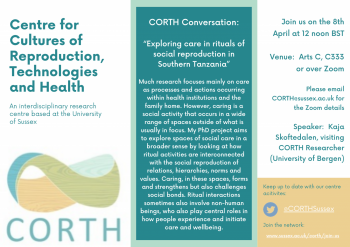
Dancing Surrogacy
Date: 28th March, 4pm to 6pm
CORTH Director Prof. Maya Unnithan and co-Director Dr. Maria Moscati organised a special 2-hour dance workshop where we imagined surrogacy through our own embodied expression and shared our thoughts combining music and movement. The event was open to CORTH members and non-members alike! Excitingly, Maria has received funds for further workshops as part of her project Dancing Belonging, which draws on her ongoing research on Dance / Law.

'Women's Empowerment: A Question of Education?' Talk
Date: 18th March, 11am to 12.30pm
Co-sponsored by CORTH, this seminar explored the complex relationship between education, literacy, and women’s empowerment. Drawing on four decades of
ethnographic work in Nepal, Prof. Anna Robinson-Pant challenged the idea of literacy as a “magic bullet” for development, often promoted by policymakers. Instead, the talk emphasised informal learning and everyday experiences as key to understanding social change. By focusing on lived realities rather than formal schooling or planned development, the seminar encouraged a stimulating group discussion on how education intersects with women’s evolving roles in society.
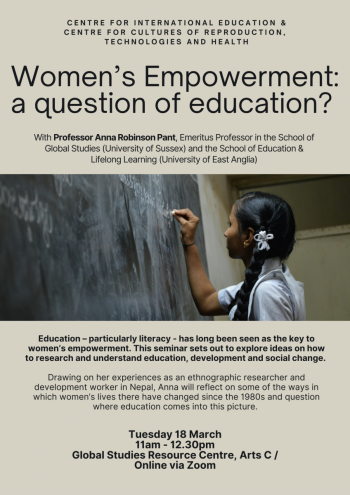
Do Doctors Really Understand Women's Health?
Date: 12thMarch 2025, 12:30 to 1:30pm
Brighton and Sussex Medical School (BSMS) celebrated International Women’s Day (8th March) with an online talk titled ‘Do doctors really understand women's health.’ More than 70 people joined the online event, which featured a talk from Dr. Chi Eziefula, Associate Professor at BSMS, and Jane Dancey, Somatic Health Practitioner and Educator, on the latest research on nutrition, brain and bone health, exercise and stress and why hormonal cycles matter across a lifetime.
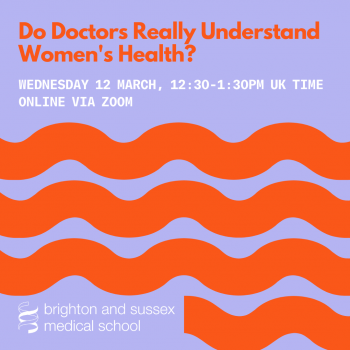
Research Fora
Date: 13th February, 12.30noon to 2.30pm
The second Researcher Fora of 2025 took place in Spring and welcomed researchers from both within the CORTH network and wider University community and
covered topics such as Gender and Disability in Lima; Social Risk and Healthcare Delays and Making Meaning of Divorce.
CORTH Autumn / Winter 2024 events:
CORTH Conversations: "The psychosocial experiences of donor conceived young adults"
Date: 25th November, 12noon to 2pm
Dr. Sophie Zadeh (Reader in Family Psychology at the School of Psychology, University of Sussex) presented her recent research to Centre members. The multi
method study ran between 2020 and 2024 and focused on young adults, between the ages of 18 and 30, in the UK, the majority of whom were conceived through
anonymous sperm donation to heterosexual couples.
Research in Progress Forum
Date: 29th October, 2pm to 4pm
CORTH co-Director Prof. Hayley MacGregor organised a Research in Progress Forum for researchers and PhDs, to discuss the progress of their research in front
of a friendly audience. We held this as a Roundtable open forum, providing space for informal input and the opportunity to connect with other researchers at
different career stages. It was the first research fora of the 2025 academic year. The Forum began with Dr. Janice Lazarus, who presented their research on ‘Contagion of Stigma and abortion decision-making within unmarried women’s experiences of abortion in India.’ While abortion has been legally available in India since 1971, access to care is not equitable for all those who seek it, with literature on abortion reflecting that unmarried women often experience judgement and stigma while seeking abortion care due to widely prevalent Brahmanical Patriarchal (caste and gender) norms that forbid women from engaging in out-of-marriage sex. Janice’s doctoral research looked at unmarried women's experiences and presented findings related to the 'Contagion of Stigma' as a patriarchal mechanism to control women's bodies, sexualities, romantic and sexual liaisons, and reproductive capabilities. The next researcher to present their work was Lea Happ with ‘Feminist politics of knowledge and care in contemporary Argentine abortion activisim,’ which examined feminist activism and abortion access in post-legalisation Argentina. Following decades of feminist mobilisation, Argentina legalised abortion on demand and free of charge until the 14th week in late 2020; Lea’s thesis asked what happens after legalisation, focusing on activist affective and embodied practices and imaginations. Caroline Rainer then showcased their work on ‘Decriminalise Sex Work: Health and Safety First,’ and the grassroots work being done by The English Collective of Prostitutes (ECP) in calling for the decriminalisation of sex work, which has been proven to enhance health - since sex workers’ health is intrinsically tied up with criminalisation and poverty. For the second half of the Forum, Doctoral researcher Ali Ramsey gave an overview of the work she had been doing interrogating media representations of menopause using found footage filmmaking techniques. Ali showed clips from her experimental documentary film 'Menopause: The Movie,’ which has been shortlisted by several film festivals, was a finalist in the top 3 documentaries at the LA Femme International Film Festival, won an award at the Women Over Fifty Film Festival and was screened at the launch of the AHRC funded Scholarly Association for Menopause Studies. The Forum concluded with a presentation from Ritu Ghosh, discussing their work into ‘Legislating Reproductive Labor: Surrogacy in Contemporary India’ that investigates India’s new surrogacy legislation (only legally recognising altruistic surrogacy) as an instance of reproductive governance that naturalises and devalues marginalised women’s reproductive labour. Raising crucial questions for the ethics of rendering such corporeal, intimate, and affective labour as free, Ritu’s research explores how surrogate workers navigate the new bureaucracies of the contemporary Indian surrogacy industry, and how they secretly resist these structures to gain agency and create informal markets of reproductive labour.
CORTH’s Research in Progress forums are a valuable opportunity for PhD candidates and Early Career Researchers to receive feedback and exposure for their research in a friendly environment of similarly minded colleagues and faculty.
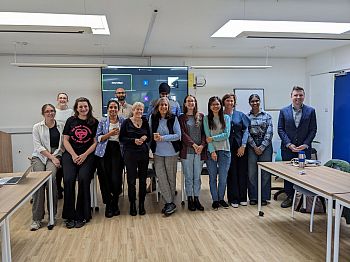
HIV, gender and the politics of medicine: Embodied democracy in the global south
Book Launch, featuring the author and CORTH co-Director Dr. Beth Mills
Date: 16th October, 4.30pm - 6pm
CORTH Co-Director Dr. Beth Mills celebrated the launch of her new book HIV, Gender and the Politics of Medicine. During the launch Beth spoke with a panel of academics and activists from South Africa and the UK, to discuss the lessons from the global struggle for equitable access to life-saving HIV treatment. The book centers on the lives of women who live with HIV in South Africa and who have navigated a complex assemblage of affective relationships, activist networks, government institutions and global coalitions to transform international and national health policies that govern access to essential HIV medicine.
About the book
HIV, Gender and the Politics of Medicine centers on the lives of women who live with HIV in South Africa and who have navigated a complex assemblage of affective relationships, activist networks, government institutions and global coalitions to transform international and national health policies that govern access to essential HIV medicines. Drawing on 20 years of multi-sited ethnographic and policy research in South Africa, India and Brazil, the book foregrounds the value of understanding the embodied and political dimensions of health policy and reveals the networked threads that weave women’s embodied precarity into the governance of technologies and the technologies of governance. This study of women’s activism to access HIV medicine is not simply a study of the evolution of global and national health policy but one that reveals the extent to which policy becomes embodied, recognizing that bodies too are never the same and experience intersecting inequalities in profoundly unique ways. By focusing specifically on policies around access to HIV medicines at a national, transnational and global level, this book traces an important history - the struggle to access these medicines in the Global South – and brings this history into the present by articulating the lessons learnt by the activists and policy makers engaged in shaping these vital policies over the first two decades of the 21st century.
CORTH Spring / Summer 2024 events:
Surrogacy Workshop: "Surrogacy Beyond the Carceral: Culture, Law and Lived Experience"
Date: 27-28th June, 10am - 4pm
The Centre for Cultures of Reproduction, Technologies and Health, in collaboration with the Department of Liberal Arts, Indian Institute of Technology, Hyderabad, organised an international workshop on the 27th and 28th of June, 2024, in anticipation of its 10th anniversary. Titled ‘Beyond the Carceral: Culture, Law, and Lived Experience’, the workshop brought together scholars working on surrogacy to throw light on the various cultural and social ideas that underpin the concepts, language, and practice of surrogacy legislation.
The program was spread over four sessions, with each session focussing on different geographical regions and disciplinary locations. Researchers from the disciplines of law, sociology, anthropology, health and medicine, philosophy, among others, presented their work across the two days. The Director of CORTH, Maya Unnithan, introduced the workshop by commenting on the significance of speaking about surrogacy in a post-Roe world, where the implications of the law on people’s everyday reproductive dilemmas have become more pronounced in the contemporary moment than ever before. Co-director, Maria Moscati, in her opening comments, remarked on the need to have more comprehensive and holistic approaches to studying gender, sexuality and reproduction through interdisciplinary approaches. Co-organiser Anindita Majumdar, from the Indian Institute of Technology, Hyderabad, noted that collaborations across universities and countries are imperative to produce knowledge that is critical, timely, and inclusive.
On the limitations of children’s rights
Lottie Park-Morton, Senior Lecturer at the University of Gloucestershire, began her presentation by looking at how surrogacy law acts upon the regulation of parenthood in various contexts, specially through the rhetoric of the child’s best interests. Through her analysis of case studies from England and Wales, Sweden, and California, in the US, she concluded that a robust, consistent engagement with Child Rights Impact Assessments (CRIA) is essential in arbitrating cases over custody and parenthood in surrogacy. Professor Rachel Thomson, who chaired the session, was in agreement, opining that questions about the best interests of children disproportionately focus on biological lineage and legal parentage; but in reality, there are so many factors that contribute to what a happy childhood or a content life is. Marianna Iliadou, Lecturer, University of Sussex, asked if the discourse of reproductive rights can be used to adequately address people’s everyday experiences with sexual and reproductive injustice, when their implementation remains wildly inconsistent.
Jayna Kothari, Senior Advocate, Supreme Court of India, specifically addressed the law’s prohibition of single women’s rights to have children through surrogacy, contending that the state seeks to delegitimise forms of family formation that lie outside the heteronorm, pushing women into marriage in order to have children. Maria Moscati intervened to urge us to think about women’s rights in this context without essentialising what the juridical or political category of ‘woman’ itself meant. Based on the arguments made by Jayna, audience members and other panellists engaged in debate about how the protection of children and discussions on responsible parenting, the right to parent, single women’s right to parent, and queer couples’ rights to parent must not reinforce the idea that parenting is private, and enclosed within the nuclear family. We must think of long-term care of children that is communal, goes beyond the authority of just parental figures, and challenges the individualised, privatised notion of the family, while engaging in more communitarian, social models of childcare.
Governing intimate lives
Brian Tobin, Associate Professor in Law, University of Galway, looked at the impact of surrogacy law on culture and lived experience, and how they transform each other. Ireland has historically been reluctant to permit traditional surrogacy. This, he argues, is because Irish culture, historically, sees a very strong connection between the birth mother and the child. This is apparent in Ireland’s long and difficult regulations on abortion. His presentation summarily argued that although the Irish law proposes to allow surrogacy, in practice, it seeks only to discourage it or make it very difficult to access, on account of the country’s sanctification of normative maternal experiences. Rachel Thomson noted that the phrasing of mater semper in the Irish law signals how archaic and unchanging the idea of motherhood is supposed to be. In a similar vein, Elisa Baiocco, PhD scholar at the Sapienza University of Rome, looked at the Italian government’s recent proposal to make surrogacy a universal crime. She argued how this disenfranchises queer individuals and their aspirations to family-making, subjecting their intimate lives to disproportionate surveillance as a consequence. Skylab Sahu, Assistant Professor, Miranda House, Delhi, whose research is anchored in India, also brought in the question of legal inadequacy, arguing that a punitive framework marginalises queer individuals.
Reproducing the nation-state
Anika Konig, Substitute Professor, Freie University, Berlin, traced contemporary German regulation on assisted reproduction to histories of Nazi eugenics and nation-building, arguing that the way the German state seeks to regulate surrogacy reproduces visions of an imperialist racial past. Christina Weis, Senior Lecturer, De Montfort University, Leicester, spoke about the recent Russian bill of 2022 which prohibits surrogacy for single mothers, unmarried couples and foreigners to access surrogacy. This, she argues, reinforces the Russian constitution’s focus on the primacy of ‘traditional family values’, where only heterosexual nuclear families receive state and social legitimation. Anindita Majumdar, in her response to these presentations, urged us to think how the state continually keeps shifting the goalposts of eugenics, making questions of reproductive autonomy harder to navigate. States are invested heavily in the reproduction of the ‘right’ kind of citizenry, which results in the castigation of some women for wanting children, and some others for not wanting them. Authoritarian regimes therefore disproportionately scrutinise women’s bodies. Heather Jacobson, Professor, University of Austin, Texas, looked at how the state of Texas in the United States has emerged as a hub for surrogacy over the years. This, she argues, has been made possible as the state is well-known as being industry-friendly due to its lack of individual and corporate income tax, its large and diverse workforce, and a relatively thriving economy. Another contextualizating factor which facilitates surrogacy in Texas is the historically strong Evangelical Christian base in the state and the historic lack of controversy among evangelicals around ART-use by heterosexually-married couples during the time that the surrogacy industry was establishing and growing in the state.
The session was chaired by Maya Unnithan, who noted how legal and national histories, alongside economic and cultural histories operate in complex, intersecting ways. On the one hand, if both legal prohibition and legal sanction of ARTs are meant to protect vulnerable individuals, then how do they simultaneously engender precarities of different kinds, mobilising varying strands of carcerality in the everyday lives and experiences of people.
On reproductive labour
Sunhye Kim, Assistant Professor, Ehwa Women’s University, South Korea, who joined us online from Korea, focused on the meanings of reproductive labor in the transnational circuits of the ART industry in South Korea. By analyzing the embodied experiences of both intended parents and gestational surrogates when they participate in the baby-making process together, her paper examined how paid mothers (Ukrainian gestational surrogates) and unpaid mothers (Korean infertile women) perform their reproductive labour in similar and different ways when they work together to make a baby in the transnational Korean ART industry.
In the final session of the program, Prabha Kotiswaran, Professor, King’s College, London, and Madhushree Jana, post-doctoral Research Associate, King’s College, London, argued that state protections must not impinge on personal freedoms, and instead of a punitive regulatory framework, we must demand more robust protections for surrogate mothers and egg donors from a labour rights position. Aishwarya Chandran, PhD scholar at the University of Sussex, argued that the carceral turn in surrogacy legislation in India seeks to reinforce the biases that exist against the reproduction of migrant, Muslim and Dalit bodies, by pushing their livelihoods further into precarity. Priya Sharma, post-doctoral Fellow, Indian Institute of Technology, Bombay, posed similar questions, where she argued that legal deliberations over altruism and exploitation failed to account for women’s lived experiences of precarious waged work and familial obligation. The session was followed by animated discussions on the parallels between laws that regulate sex work and surrogacy, and how both of these forms of precarious, embodied work, essential to the processes of social reproduction, are implicated in the politics of governance through criminalisation.
The workshop helped us all think through several questions about reproductive freedom and justice, the state’s legitimisation and delegitimization of specific processes of family formation, the state’s vested interests in curtailing the reproduction of specific bodies while permitting the reproductive autonomy of certain other bodies. The presentations also urged us to think about reproductive coercion and reproductive pleasures outside of the framework of rights, where the need to expand the categories of what constitutes a family, what constitutes a woman, what constitutes individual liberty must be understood beyond legalistic frameworks, and through notions of interconnected, social living. The program was also helpful in thinking through feminist commitments towards reproductive and sexual freedoms, where the family, the neoliberal market, and the state all emerge as agents we must wrestle with and against to secure freedoms for all.
You can read the published articles that came out of the workshop in the Amicus Curiae Journal of the Society for Advanced Legal Studies, Vol. 6 No. 2 (2025): Series 2 | Amicus Curiae
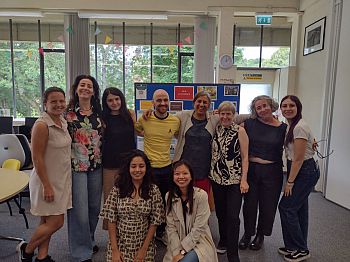
"Queering Global Health" Symposium
Date: 4th June, 9am onwards
This summer Svati Shah (University of Massachusetts) and Paul Boyce (Sussex) co-convened three workshops on the themes of Queer and Trans World Anthropologies and Queer and Trans Global Health. The anthropology focused workshops were held in two parts, at The University of Sussex and at Future Africa, Pretoria, in association with Vasu Reddy and colleagues at The University of the Free State. The meetings convened scholars working on queer and transgender socialities and becomings from Southern and Eastern Africa and South Asia. Participants explored new ways of supporting and developing queer and trans anthropologies outside of Euro-North American academic transfer zones. Bringing together innovative scholarship, we sought to reorient queer and trans perspectives and research, opening out new ontologies and collaborative connections, based on a revisiting of ‘World Anthropology’ critiques from the Global South.
The third summer workshop, on Queer and Trans Global Health, focused on interdisciplinary scholarship in transnational health research, and was co-convened by Svati and Paul along with Beth Mills and Maria Moscati (Sussex). The workshop drew together scholars and activists working in China, Cuba, India, Indonesia, Kenya, Mozambique, Nepal, South Africa, the U.K. and the U.S. We explored normative power structures in the making and unmaking of global health knowledge, creative praxis, and queer and trans archiving.
Funds were provided by The University of Massachusetts, The University of Bergen, The University of the Free State and The University of Sussex (Global Studies HEIF funding).
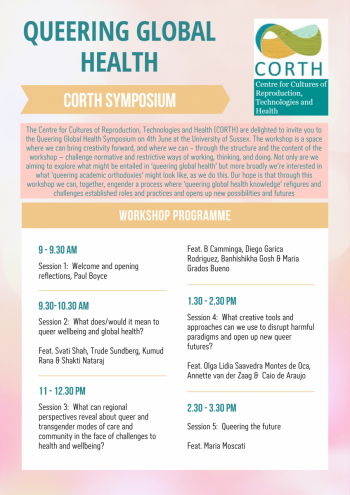
Research in Progress Forum
Date: 23rd May, 1pm
The Centre for Cultures of Reproduction, Technologies, and Health (CORTH) held its Spring / Summer Research Fora for doctoral students and ECRs to present their work, whatever stage they are at, to a friendly audience made up of Centre students and faculty.
Reproductive Rights and Strategic Litigation
Date: 25th January, 12noon - 2pm
On the 25th January, CORTH’s Maria Moscati joined Juliana Cesario Alvim Gomes, CEU LEGS, in Vienna for an open conversation on ‘Reproductive Rights and Strategic Litigation’. The conversation between Maria Moscati (CORTH/Sussex) and Juliana Cesario Alvim Gomes (LEGS/CEU) explored legal mobilisations and judicial approaches to reproductive rights in Italy and Brazil, delving into differences, similarities, challenges, and strategies.

CORTH Autumn/Winter 2023 events:
The Period Experience for Every Body
Date: 24th November, 12.30 - 1.30pm
Following their popular session for International Women's Day earlier this year, BSMS and LifeScience colleagues organised another discussion event on the topic of menstrual health with Dr. Chi Eziefula, Senior Lecturer at Brighton and Sussex Medical School (BSMS) and co-Director of CORTH, and guest speaker Jane Dancey, Somatic Health Practitioner and Educator.
The Period Experience for Every Body : Staff Hub : University of Sussex
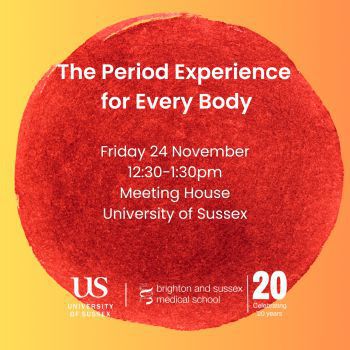
CORTH Autumn/Winter 2022 events:
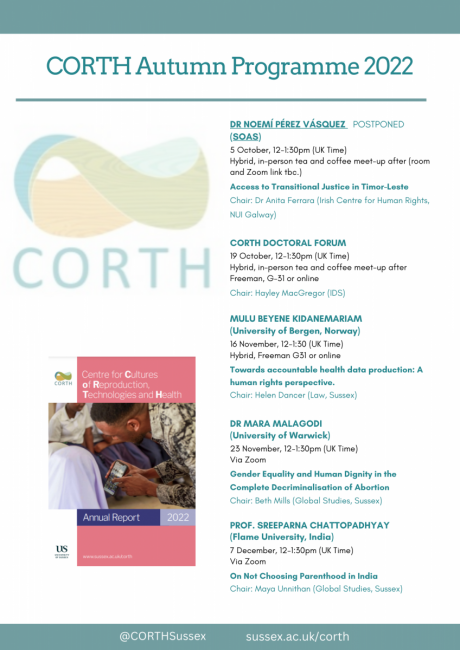
CORTH Spring/Summer 2022 events:
5th April, 4-6pm: Chai Pe Charcha: A roundtable discussion on the recent state election results in India
31st May 2:30-3:45pm: Book launch for Anthropologies of Global Maternal and Reproductive Health: From Policy Spaces to Sites of Practice.
Join us to celebrate the launch of this landmark edited volume, to which CORTH co-director, Prof. Maya Unnithan, has contributed.
More details on the Eventbrite page and poster (click on the front cover image for the Open Access ebook).
CORTH co-sponsored event:
9th June 10am-1:30pm: ‘(Un)safe to be me? Exploring the rights and lived experiences of LGBTI people in the UK’, co-hosted CORTH event with The Human Rights Implementation Centre, University of Bristol.
This interdisciplinary half-day conference, organised by CORTH co-director, Dr Maria Moscati, will explore the legal, social and political rights of LGBTI people in the United Kingdom.
More details on the Eventbrite page.
CORTH Events Autumn 2021
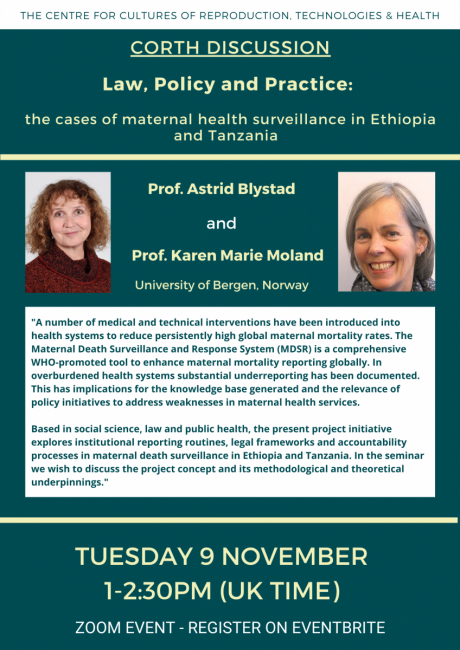
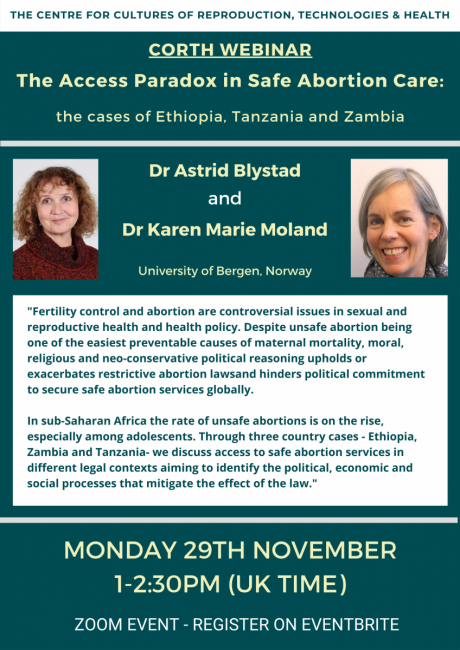
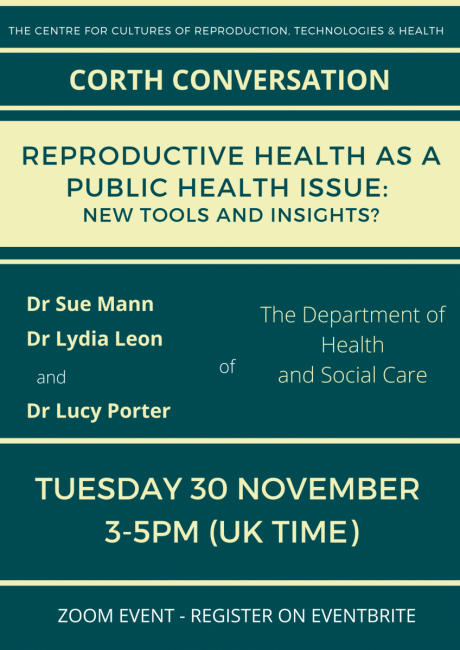
CORTH Seminar
Conditional Fertility: Multispecies Kinship, Care and Community
Wednesday 12 May, 4pm
Speaker: Katharine Dow, Senior Research Associate and Deputy Director, Reproductive Sociology Research Group (ReproSoc), University of Cambridge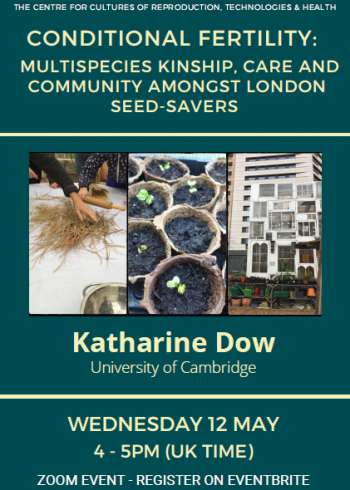
CORTH Seminar
Reproductive Democracy and Abortion Law Reform in Argentina
Wednesday 17 February, 5-6.30pm
Speaker: Paola Bergallo (Universidad Torcuato Di Tella)
Discussant: Alicia Ely Yamin (Harvard Law)
CORTH welcomes Paola Bergallo to discuss her work on abortion law in Argentina and their recent landmark victory for abortion rights.
Register here
Recording available here
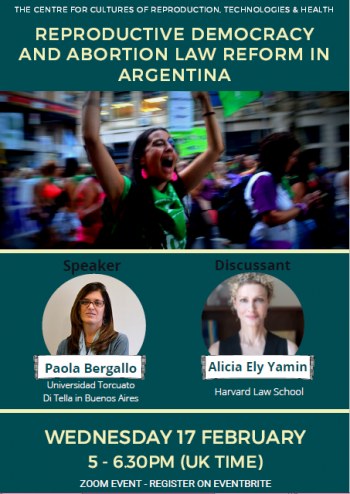
CORTH Workshop
Building Therapeutic Relationships Online: How clinical interactions are changing as sexual reproductive health care goes digital
Friday 29 January, 9am-4pm
Co-organised by Dr Paula Baraitser & Prof Maya Unnithan
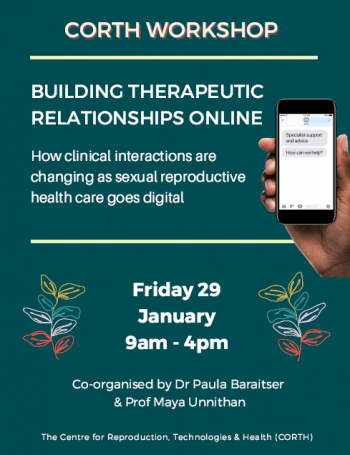
CORTH Conversation
Midwifery & Covid-19
Monday 7 December, 4.30 – 6pm (UK time)
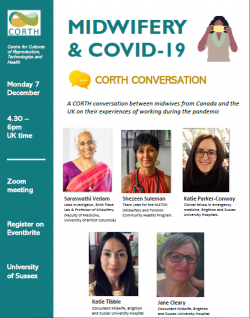
- Saraswathi Vedam, Lead Investigator of the Birth Place Lab and Professor of Midwifery in the Faculty of Medicine at University of British Columbia.
- Shezeen Suleman, Team Lead for the MATCH (Midwifery and Toronto Community Health) Program.
- Kathryn Parker-Conway, Clinical fellow in emergency medicine, Brighton and Sussex University Hospitals.
- Katie Tibble and Jane Cleary, Consultant Midwives, Brighton and Sussex University Hospital
Globally, COVID-19 has disrupted aspects of birth that make it a safe and positive experience for women. In December CORTH lead an international and multi professional exploration into the impact of COVID-19 on Midwifery. The conversation centred around perspectives of midwives from the UK and Canada, working on the frontline during the pandemic. Changes to their practice such as telephone consultations and inhibiting partners from being present at the birth were detailed. Innovative new roles for midwives were also introduced including a social media midwife, to improve communications. Women’s difficult experiences of pregnancy, birthing and their postnatal time were empathically discussed. But also, acknowledgement that for midwives and maternity staff in general, the pandemic imposed incredibly challenging and stressful working conditions. The academic perspective was given by Professor Saraswathi Vedam who pointed out that for many pregnant and birthing women around the world, such as refugees, social distancing and other COVID-19 measures have proven impossible to work with.
Register here
Recording available here
CORTH Conversation
Sex Education and Activism
Monday 23 November, 1.30 – 3pm
We are excited to welcome three speakers to our CORTH conversation:
-
Milly Evans (Youth sex education advocate and health journalist at Patient)
-
Ben Kasstan (Vice Chancellor's Fellow and medical anthropologist at Bristol University)
-
Lisa Hallgarten (Head of Policy and Public Affairs at Brook, Healthy Lives for Young People)
Each speaker will discuss their own work in the field of sexual reproductive health and share their perspectives on sex education and activism today.
Find out more...
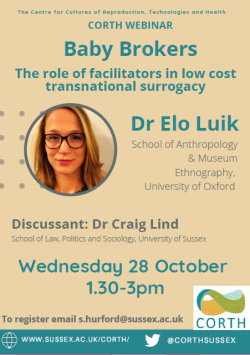
CORTH Webinar
Baby brokers: the role of facilitators in low cost transnational surrogacy
Wednesday 28 October, 1.30 – 3pm
Speaker: Elo Luik
(School of Anthropology & Museum Ethnography, University of Oxford)
Discussant: Craig Lind
(School of Law, Politics and Sociology, University of Sussex)
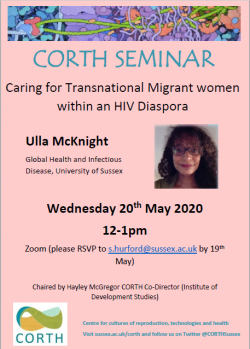
CORTH Research Seminar
Caring for Transnational Migrant Women within an HIV Diaspora
Ulla Mcknight (Research fellow, Sociology, School of Law, Politics and Sociology)
Chaired by Hayley McGregor.
Wednesday 20 May 12:00 until 13:00
Zoom
28 people attended via Zoom
Further details and Zoom recording: Caring for transnational migrant women within an HIV diaspora
Download the poster: Caring for Transnational Migrant Women within an HIV Diaspora
CORTH Research Seminar
Caring for transnational migrant women within an HIV diaspora
Ulla McKnight (Dept. of Global Health an Infectious Disease, University of Sussex)
Wednesday 22 April 12:00 until 13:00
Arts C333
CORTH Conversation
Intergenerational Transfers of Knowledge: Reading the Bloods of our Intellectual Lineages
Carli Coetzee (Dept. of African Languages, Cultures and Literature, SOAS)
Wednesday 25 March 12:00 until 13:00
Arts C333
CORTH Conversation
Reimagining Reproductive Rights in India: The Role of Equality and Non-Discrimination
Gauri Pillai (Department of Law, University of Oxford)
Wednesday 12 February 12:00 until 13:00
Arts C333
CORTH Research Seminar
Corporatisation, re-stratification and the new imperatives in healthcare: a case study from India
Ben Hunter (International Development, School of Global Studies, University of Sussex)
Wednesday 29 January 12:00 - 13:00
Arts C333
CORTH Conversation
'Biographies of antibiotics: Experience from Bangladesh'
Dr. Papreen Nahar (Brighton and Sussex Medical School)
Wednesday 20 November 3-5pm
Global Studies Resource Centre, Arts C175
CORTH Conversation
‘Critical Digital Health’
Dr. Paula Baraitser (SRH 24 and Kings College London)
Tuesday 29 October 12:30-2pm
Bramber House 255
CORTH Research Highlights
Monday 21st October 3-5pm
Pevensey 1-1B2
Presentations from new members (Gitau Mburu, Ben Hunter, Neemah Ahamed)
Updates from existing members (Rebecca Ashley, Gillian Love, Shadreck Mwale)
CORTH Research Seminar
Beyond legality – An ethnography of the Zambian abortion law
Marte Haaland (University of Bergen)
Monday 13 May 3.30pm
Arts C333
Further details: Beyond legality – An ethnography of the Zambian abortion law
CORTH Conversations
Surrogacy and gay male parenting: Balancing the rights and interests of those involved
with
Bronwyn Parry (Kings College London), Philip Bremner (Sussex), Maria Moscati (Sussex), Craig Lind (Sussex), Maya Unnithan (Sussex) and Danielle Griffiths (Sussex).
Wednesday 1 May 13:30 until 17:00
Moot Room, Freeman Building
Further details: CORTH Conversations Surrogacy and gay male parenting: Balancing the rights and interests of those involved
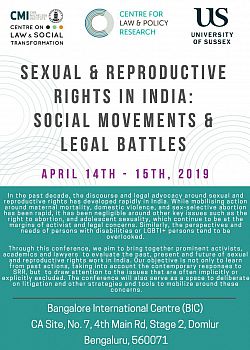
International Conference:
Centre for Law & Policy Research, CMI Centre on Law & Social Transformations & CORTH
Sexual & Reproductive Rights in India:
Social movements & Legal battles
Siri Gloppen (University of Bergen, Norway), Maya Unnithan (CORTH, University of Sussex), Jayna Kothari (CLPR), Jashodhara Dasgupta (National Foundation for India), Trinetra Haldar Gummaraju (Manipal University), Vinay Chandran (Swabhava Trust), Saumya Dadoo (CLPR), Gauri Pillai (University of Oxford), Jaya Sagade, (ILS Law College, Pune), Aparna Chandra (National Law University Delhi), Swagata Raha (Restorative Justice & Legal Affairs), Suchitra Dalvie (Asia Safe Abortion Partnership), Sarita Barpanda (Reproductive Rights Unit, HRLN), Anita Ghai (Ambedkar University, Delhi), Nidhi Goyal (Point of View), Renu Addlakha (Centre for Women's Development Studies), Anindita Majumdar (IIT Hyderabad).
April 14-15 2019
Bangalore International Centre (BIC) – Bangalore, India
Further details: Sexual & Reproductive Rights in India: Social movements & Legal battles [PDF 179.01KB]
CORTH Research Seminar
How should we respond to the increased genetic risk associated with close relative marriage in England?
Sarah Salway (Department of Sociolegal Studies, University of Sheffield)
Wednesday 3 April 16:00 until 18:00
Global Studies Resource Centre, Arts C
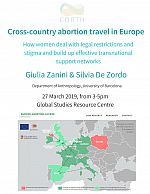 CORTH Research Seminar
CORTH Research Seminar
Cross-country abortion travel in Europe:
How women deal with legal restrictions and stigma, and build up effective transnational support networks
Silvia De Zordo and Giulia Zanini (University of Barcelona)
Wednesday 27 March from 3-5 pm
Global Studies Resource Centre, Arts C
Download the poster: Cross-country abortion travel in Europe: How women deal with legal restrictions and stigma [PDF 616.25KB]
SCMR & CORTH Research Seminar
'Where Shall Thou Rest': Death and Dying of Syrian Refugees in Lebanon
Shahaduz Zaman (University of Sussex)
Wednesday 13 March 3:30-5pm
Arts C333
Anthropology Department Seminar Series & CORTH Visiting Speaker
Varieties of life forms and the return of animism
Marilyn Strathern (Department of Social Anthropology, University of Cambridge)
Tuesday 26 February 2019, 3-5 pm
Arts C333
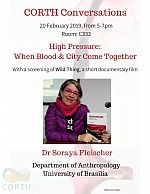
CORTH Conversations
High Pressure: When blood and city come together
Soraya Fleischer (Department of Anthropology, University of Brasilia)
Wednesday 20 February 2019, 5-7 pm
Arts C333
Download the poster: High Pressure: When blood and city come together [PDF 664.15KB]
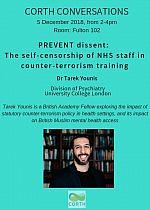
CORTH Conversations
PREVENT Dissent: The self-censorship of NHS staff in counter-terrorism training
Dr Tarek Younis, University College London
Wednesday 5 December 2018, 2-4 pm
Fulton 102
Download the poster: CorthConversations 3 [PDF 235.33KB]
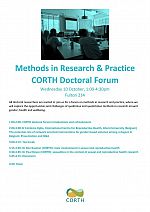
Methods in Research & Practice: CORTH Doctoral Forum
Wednesday 10 October from 13:00 until 16:00
Fulton 214
All doctoral researchers are invited to join us for a forum on methods in research and practice, where we will explore the opportunities and challenges of qualitative and quantitative methods in research around gender, health and wellbeing.
More details: Methods in Research & Practice [PDF 369.98KB]
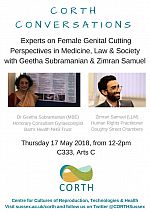 CORTH Conversations
CORTH Conversations
Experts on Female Genital Cutting. Perspectives in Medicine, Law & Society
Dr Geetha Subramanian (MBE), Honorary Consultant Gynaecologist, Bart's Health NHS Trust
Zimran Samuel (LLM) Human Rights Practitioner, Doughty Street Chambers
Thursday 17 May 2018, from 12-2pm
C333, Arts C
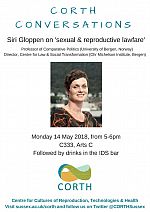 CORTH Conversations
CORTH Conversations
Siri Gloppen on 'sexual & reproductive lawfare'
Professor of Comparative Politics (University of Bergen, Norway)
Director, Centre for Law & Social Transformation (Chr Michelson Institute, Bergen)
Monday 14 May 2018, from 5-6pm
C333, Arts C
Followed by drinks in the IDS bar
Download the Corth Conversations poster: Corth Conversations
Culture, Rights & Mobilities: Contested views on sex-selective abortion in the UK
25 April 2018, 3.30pm Arts C333
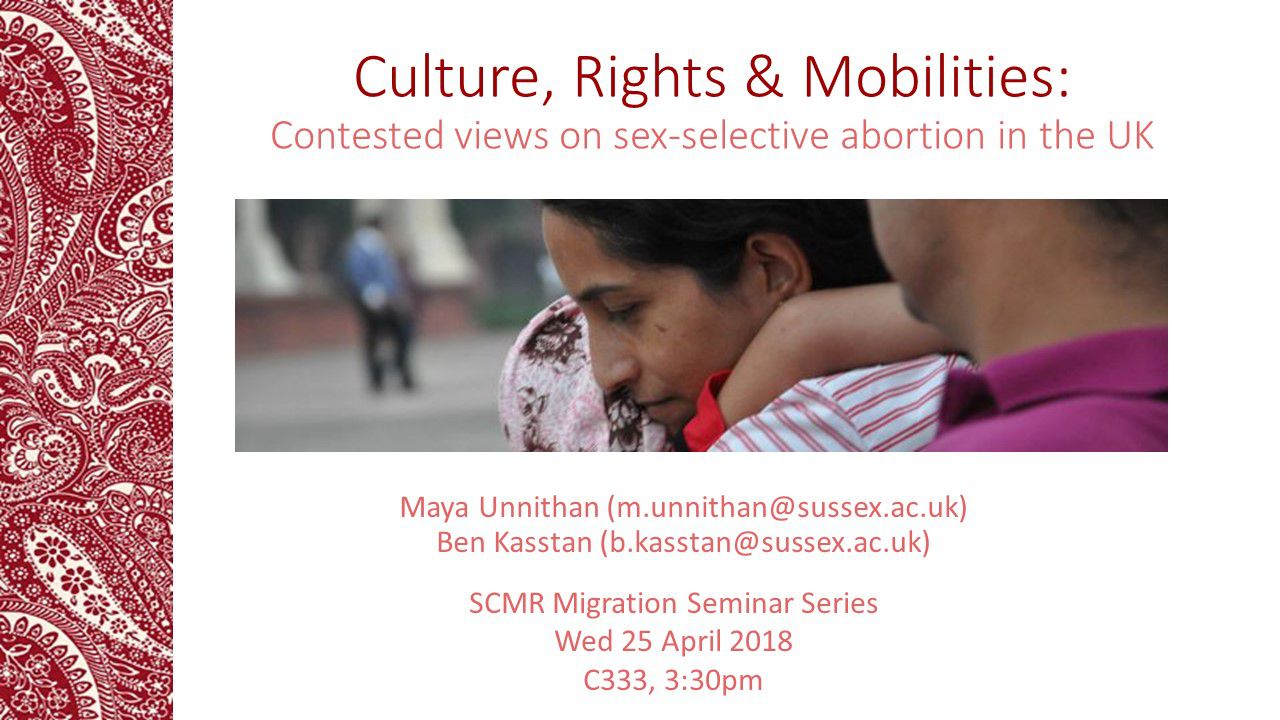
Children’s Right to Health
11 December, 12-5, Global Studies Resource Centre, Arts C
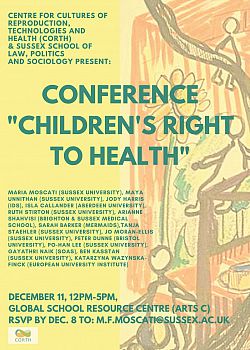 MARIA MOSCATI (SUSSEX UNIVERSITY),
MARIA MOSCATI (SUSSEX UNIVERSITY),
MAYA UNNITHAN (SUSSEX UNIVERSITY),
JODY HARRIS (IDS),
ISLA CALLANDER (ABERDEEN UNIVERSITY),
RUTH STIRTON (SUSSEX UNIVERSITY),
ARIANNE SHAHVISI (BRIGHTON & SUSSEX MEDICAL SCHOOL),
SARAH BARKER (MERMAIDS),
TANJA STAEHLER (SUSSEX UNIVERSITY),
JO MORAN-ELLIS (SUSSEX UNIVERSITY),
PETER DUNNE (BRISTOL UNIVERSITY),
PO-HAN LEE (SUSSEX UNIVERSITY),
GAYATHRI NAIK (SOAS),
BEN KASSTAN (SUSSEX UNIVERSITY),
KATARZYNA WAZYNSKAFINCK (EUROPEAN UNIVERSITY INSTITUTE)
A CORTH and School of Law joint conference
Downloads
Transitional Justice, Gender and Reproduction Narratives: Bosnia Herzegovina, Colombia, Estonia, Timor-Leste
8 December, 2-5, Global Studies Resource Centre, Arts C
Sonia Ariza Navarrete (European University Institute)
Ebru Demir (Sussex University)
Noemí Pérez Vásquez (SOAS)
Liiri Oja (European University Institute)
Maya Unnithan (Sussex University)
A research workshop
Abstract
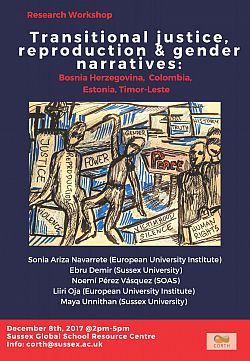 Many (feminist) scholars have actively critiqued the lack of “gender lens” in transitional justice processes (Christine Bell, Catherine O’Rourke, Katherine M. Franke, Fionnuala Ní Aoláin). More specifically, Ramona Vijeyarasa wrote in her 2009 article, how reproductive rights and reproduction in general do not receive enough attention in post-conflict development agendas.
Many (feminist) scholars have actively critiqued the lack of “gender lens” in transitional justice processes (Christine Bell, Catherine O’Rourke, Katherine M. Franke, Fionnuala Ní Aoláin). More specifically, Ramona Vijeyarasa wrote in her 2009 article, how reproductive rights and reproduction in general do not receive enough attention in post-conflict development agendas.
Our workshop is fuelled by the same concern – where are reproductive rights issues such as forced pregnancy, abortion, access to contraception, and reproductive violence in transitional justice conversations? However, we set out to approach this question more broadly as we understand reproductive rights not just through lists of services and specific entitlements, but through power relationships and gender narratives. Therefore, in this workshop we bring together the transitional justice experiences of Bosnia Herzegovina, Colombia, Estonia and Timor-Leste, and analyse, how specific constructions of “truth”, “violence”, “silencing” and “victimhood” have contributed to shaping the reproduction and health narratives currently present in these four societies.
We make observations about the existence and strength of feminist movements in these countries, and investigate how cultures and religions have shaped women’s experiences during and after the conflict-, or occupation-related violence. What has happened to women’s bodies? Which roles are assigned to/enforced on women? We explore gaps and disconnects between legislation, implementation of laws, and women’s lived experiences and larger societal narratives. We show, how in transitional justice one size does not fit all, and how some of the experiences are different if not completely opposite.
Downloads
- Transitional Justice, Gender and Reproduction Narratives - flyer [PDF 6.81MB]
- Transitional Justice, Gender and Reproduction Narratives - schedule [PDF 79.54KB]
Biometric governance and food security in India
14 November, 3-5, Pevensey 2D10
Ursula Rao (Professor of Anthropology, University of Leipzig)
Anthropology Department / CORTH seminar
Sussex Rights and Justice Research Centre Workshop: Human Rights, Bodies and Health
7 November, 10-12, Arts C333
Breakfast pastries & coffee, tea provided
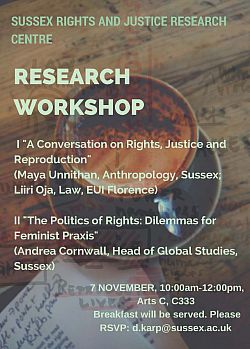 Maya Unnithan (CORTH Director): A Conversation on Rights, Justice and Reproduction (Part 1)
Maya Unnithan (CORTH Director): A Conversation on Rights, Justice and Reproduction (Part 1)
Liiri Oja (PhD researcher at the European University Institute, CORTH visitor): A Conversation on Rights, Justice and Reproduction (Part 2)
Andrea Cornwall (Head of Global Studies): The Politics of Rights: Dilemmas for Feminist Praxis
The Sussex Rights and Justice Research Centre’s research workshops are the Centre’s flagship activity. They involve short presentations on active research in progress, aiming to bring people together from across the University who are working on thematically similar topics, but often in different disciplines. These short talks are then followed by an extended Q&A/roundtable-style discussion. It is an informal, friendly and vibrant space for colleagues across the university to introduce themselves and their research to each other, and to get valuable feedback on early-stage work.
RSVP: The meeting is free and open to all, but can you please e-mail me at d.karp@sussex.ac.uk by Friday 27thOctober if you plan to come.
“Dirty, misbehaving and dangerous” Women: Human Rights-Based Responses to Reproductive Violence
A talk by Liiri Oja
25 October, 1:00-2:00pm, Freeman Building F-39
Abstract
We are conditioned to think that demeaning stereotypes about women an their bodies are “natural side-effects of being a woman”, or just “misfortunes of life”. In truth, generalised views such as “real women choose vaginal births” set women up for reproductive violence by allowing women to be talked down to, second-guessed, disregarded, shamed, mistreated, and punished for expressing autonomous choices. Thus, stereotypes are shortcuts to human rights violations.
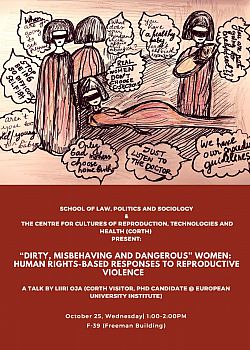 Through analysing case-law from transnational human rights forums regarding forced gynaecological examinations and child birth I show, how transnational human rights forums often miss the opportunities to name, describe and reject stereotypes, and to produce transformative jurisprudence that would fight effectively against reproductive violence.
Through analysing case-law from transnational human rights forums regarding forced gynaecological examinations and child birth I show, how transnational human rights forums often miss the opportunities to name, describe and reject stereotypes, and to produce transformative jurisprudence that would fight effectively against reproductive violence.
Bio
Liiri Oja is a PhD candidate at the European University Institute. After her legal training in native country Estonia and graduate degrees from Oslo University and Georgetown University Liiri worked as a legal advisor for the Estonian Parliament’s Research Department. During her PhD she has done research at the François-Xavier Bagnoud Center for Health and Human Rights (Harvard University), and the Reproductive Sociology Research Group (Cambridge University).
Her thesis titled “Who is the ‘Woman’ in Human Rights Law: Narratives of Women’s Bodies and Sexuality in Reproduction Jurisprudence” is a feminist critique of power and reproduction. Specifically, she is interested in how transnational human rights forums have constructed narratives about women in reproduction jurisprudence (cases concerning abortion, home birth bans, forced sterilisations, assisted reproduction, “virginity testing”, maternal mortality).
Download the flyer: “Dirty, misbehaving and dangerous” Women [PDF 8.16MB]
Indigenous midwifery and birth place:
Exploring authoritative knowledge, risk, and technology in northern Canada and rural Uganda
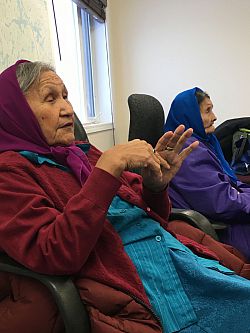 Elder Indigenous midwives in northern Canada
Elder Indigenous midwives in northern Canada
Thursday October 5, 2017, Arts C Room C333
Abstract: This presentation will follow Rachel Olson’s research in rural and remote midwifery care in northern Canada and in rural, central Uganda. Issues of access to midwifery care, and location of birth place in relation to hospitals will be explored. Understanding the shifting role of Indigenous midwifery in the Canadian context and traditional birth attendants in Uganda will lend itself to a discussion of authoritative knowledge and the negotiation of risk in decision-making in childbearing practices. The introduction of mHealth technologies in the Ugandan research context will also be discussed in relation to potential future research directions.
Rachel Olson is a citizen of the Tr’ondek Hwech’in First Nation from the Yukon territory. She has been a researcher in First Nation communities since 1998, working on various projects, from oral history, traditional land use and natural resource management to First Nations health issues. She has a Master of Research in Social Anthropology from the University of Aberdeen, Scotland. In May 2013, Rachel completed a PhD in Social Anthropology from the University of Sussex, looking at the politics of midwifery care and childbirth in Manitoba First Nations communities.
Download the flyer: Indigenous midwifery and birth place [PDF 1.14MB]
|
|
|
Making sense of micronutrients – Mothers’ views from Guatemala and Peru
Thursday September 21, 2017, 12 – 1:30, IDS, Room 221
Bio: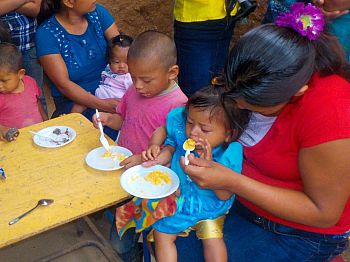 Bronwen Gillespie has a PhD in Social Anthropology from the University of Sussex. Her research draws on Quechua-speaking women’s experience as recipients of state programmes and services in the rural Andes to explore contradictions in public health and social policy. Recent publications include ‘Negotiating nutrition: Sprinkles and the state in the Peruvian Andes’ in Women’s Studies International Forum. She has extensive NGO experience in the areas of public health, nutrition and rural development, primarily in Latin America. Most recent projects have included work on refugees’ access to public health services in Europe, gender equity actions in Cuba and perceptions surrounding nutrition programs in Guatemala, as an independent consultant.
Bronwen Gillespie has a PhD in Social Anthropology from the University of Sussex. Her research draws on Quechua-speaking women’s experience as recipients of state programmes and services in the rural Andes to explore contradictions in public health and social policy. Recent publications include ‘Negotiating nutrition: Sprinkles and the state in the Peruvian Andes’ in Women’s Studies International Forum. She has extensive NGO experience in the areas of public health, nutrition and rural development, primarily in Latin America. Most recent projects have included work on refugees’ access to public health services in Europe, gender equity actions in Cuba and perceptions surrounding nutrition programs in Guatemala, as an independent consultant.
Seminar theme:
Peru and Guatemala face high rates of child malnutrition, especially in rural predominantly indigenous areas. Multi-sector nutrition strategies are in various phases of implementation, which include the widespread distribution of multi-micronutrient supplements (sprinkles) through public health services. Based on fieldwork with rural mothers in the Ch’orti’ region of Guatemala and the Quechua-speaking Andes in Peru, this seminar will focus on local response to supplementation programs, for which lack of adherence is an on-going concern. It will be argued that sprinkles are not rejected on cultural grounds, as oft assumed by public health practitioners, but rather limited by conditions of poverty, mediated by women’s relationship with the state, and how these programs feed into their existing fears and desires for their families. Many women face a limited degree of decision-making space. Their experiences invite us to raise questions regarding the potential for these mother-centred programs as well as for the underlying medicalised approach to food scarcity.
Download the poster: Making sense of micronutrients - Mothers’ views from Guatemala and Peru [PDF 186.90KB]

Centre events for Autumn 2017
Download the PDF: CORTH Centre: Forthcoming Events, Autumn 2017 [PDF 329.15KB]
The Translational Urge in the English Health Economy
Professor Chris McKevitt, Professor of Social Science & Health, King’s College London
28th April 2017, Arts C333, University of Sussex
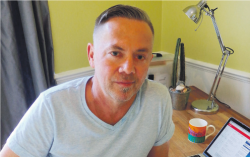 Professor Christopher McKevitt
Professor Christopher McKevitt
Translational research refers to the goal of bringing scientific discoveries made at the laboratory ‘bench’ to the ‘bedside’, where biomedical treatments are administered to patients. In this seminar, I will be sending signals from my embedded position in a London translational research infrastructure whose aim is ‘to turn scientific discoveries into better healthcare for everyone’. I will outline our programme of research investigating the messiness of entangled organisations and work places where translational research is conducted, the multiple repositioning of patients in this emerging bioeconomy, and implications for the practice of embedded ethnography.
Download the poster:
The Translational Urge in the English Health Economy [PDF 121.15KB]
Papers arising from this work:
Embedding research in health systems: lessons from complexity theory [PDF 593.31KB]
CORTH "Meet and greet" Doctoral Forum
Wednesday 8th March 2017, Art C 233, University of Sussex
Download: CORTH "Meet and greet" Doctoral Forum - programme and report [PDF 357.27KB]
Photo gallery: "Meet and greet" Doctoral Forum
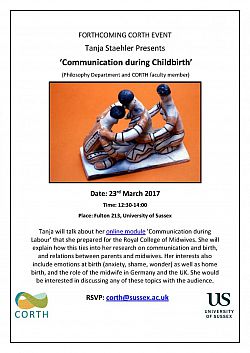
Communication during Childbirth
23 March 2017, 12:30-14:00, Fulton 213, University of Sussex
Tanja Staehler (Philosophy Department and CORTH faculty member) presents ‘Communication during Childbirth’.
Tanja Staehler will talk about her recent work creating a training module to help midwives communicate with women and their partners during labour.
Download the poster:
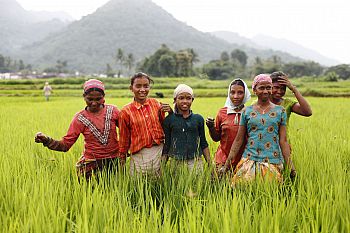
Whose Future? Skills for the 21st century in low and middle income countries
17 November 2016, 13:00-14:00, Essex House Ground Floor Meeting Room (behind reception)
Joint CIE/CIRCY/CORTH Research Café
Dr Caine Rolleston, UCL Institute of Education and Padmini Iyer, Sussex and Young Lives Project, Oxford
Download the poster:
Whose Future? Skills for the 21st century in low and middle income countries [PDF 426.94KB]
Read The Young Lives Blog, which has up-to-date summaries of research project findings.
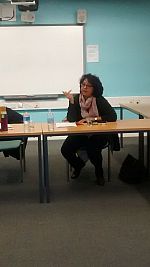 Kalpana Ram Doctoral Forum
Kalpana Ram Doctoral Forum
16 November 2016, 13:00-15:00, Fulton 214
Doctoral Forum led by Sajida Ally
Download the poster:
Spirit Possession and its Provocation of the Modern: Re-casting Frameworks for Researching Women’s Health - poster [PDF 611.84KB]
Download the summary:
Spirit Possession and its Provocation of the Modern: Re-casting Frameworks for Researching Women’s Health - summary [PDF 591.96KB]
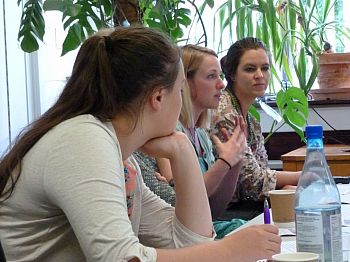
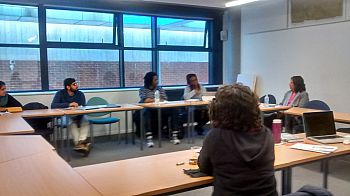
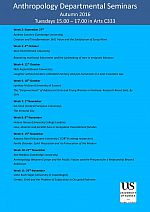 Fertile Disorder: Spirit Possession and its Provocation of the Modern
Fertile Disorder: Spirit Possession and its Provocation of the Modern
15 November 2016, 15:00-17:00, Arts C333
Kalpana Ram is visiting from Macquarie University and will be speaking at a joint CORTH/Anthropology Departmental Seminar.
Download the programme: Anthropology Department Seminars Autumn 2016
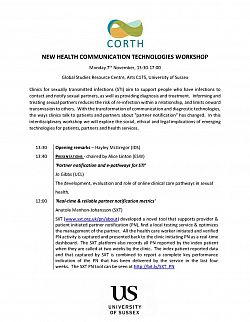
New Health Communication Technologies Workshop
7 November 2016, 13:30-17:00, Global Studies Resource Centre, Arts C175, University of Sussex
Clinics for sexually transmitted infections (STI) aim to support people who have infections to contact and notify sexual partners, as well as providing diagnosis and treatment. Informing and treating sexual partners reduces the risk of re-infection within a relationship, and limits onward transmission to others. With the transformation of communication and diagnostic technologies, the ways clinics talk to patients and partners about "partner notification" has changed. In this interdisciplinary workshop we will explore the social, ethical and legal implications of emerging technologies for patients, partners and health services.
New Health Communication Technologies Workshop - programme [PDF 347.45KB]
Framing International Surrogacy
25 July 2016, 09:30 – 17:00 GSRC, Arts C

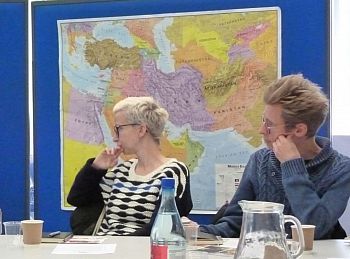 CORTH Research in Progress Workshop
CORTH Research in Progress Workshop
27 June 2016 10am - 12.30pm GSRC, Arts C
For further details of the workshop, see:
Sexuality, Sexual Reproductive Health Rights, and the Law Workshop
15 March 2016 11am - 5pm GSRC Arts C
All welcome though spaces are limited so please register your interest with corth@sussex.ac.uk
More information on the event is on our poster:
Sexuality, Sexual Reproductive Health Rights and the Law Workshop, March 2016 - poster [PDF 545.91KB]
and our report:
Sexuality, Sexual Reproductive Health Rights and the Law Workshop, March 2016 - report [PDF 1008.32KB]
The politics of producing, communicating and using knowledge to improve responses to migration
24 February 2016 3:30 - 5.30pm Arts C333
Dr Jo Vearey
The Southern African Development Community (SADC) is a region associated with both high rates of population mobility – mostly associated with movement within and across national borders to access improved livelihood opportunities - and a high prevalence of communicable diseases, notably HIV and tuberculosis. Migration is acknowledged to be a central determinant of health and the bidirectional nature of this relationship – with health influencing migration – is increasingly recognised. In spite of this, policy, programmatic and health system responses to health and wellbeing within the SADC region fail to engage with the movement of people. Key to this failure is that discussions related to the development of responses to population mobility and health are inherently political, often fuelled by anti-foreigner sentiments and unsupported claims negatively associating migrants with the spread of communicable diseases. Research shows that evidence-informed responses are lacking and current health responses – including communicable disease control programmes – will continue to struggle unless the movement of people is considered. There is an urgent need to better understand the politics of policy-making as it relates to migration and health within the SADC region which should, in turn, inform the development of improved ways for generating and communicating knowledge on migration and health. Ultimately, this should lead to the development of evidence-informed migration and health policies and programming within SADC. However, knowledge production and its application is – in itself – a political process, influenced by multiple factors associated with power and positionality.
In this presentation, I aim to explore ways of generating and communicating knowledge that aims to improve policy and programmatic responses to migration and health in SADC. This involves investigating ways of researching and evaluating the processes of knowledge production and communication. I will draw on the migration and health project southern Africa (maHp), recently established at the African Centre for Migration and Society (ACMS), University of the Witwatersrand. Informed by prior research conducted at the Centre and involving a series of unique research and public engagement projects, maHp aims to explore (and evaluate) ways to generate and communicate knowledge in order to improve responses to migration, health and wellbeing in the SADC region. Multiple disciplinary perspectives, mixed method approaches, and the involvement of various stakeholders - including migrants themselves – are considered central. It is hoped that the presentation will offer an opportunity to engage in discussion related to the production and communication of knowledge to improve public policy.
Bio
Jo Vearey holds a PhD in public health and is an Associate Professor at the African Centre for Migration and Society, University of the Witwatersrand. Jo’s research focuses on the development of improved responses to migration and health in southern Africa and she was recently awarded a Wellcome Trust Investigator Award to expand this work within the region. She has published widely and is involved in a range of international partnerships.
Doctoral Forum and Impact Workshop reports
November 2015
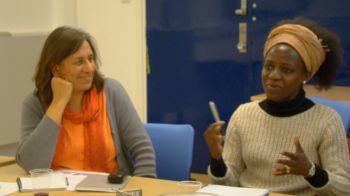 Impact workshop
Impact workshop
Sajida Ally writes up on our ‘Making an Impact with Research on Sexuality and Reproductive Health’ workshop with Pauline Oosterhoff:
Report on Making an Impact with Research on Sexuality and Reproductive Health [PDF 225.60KB]
and Lavinia Bertini reports on our Autumn 2015 doctoral forum:
Report on CORTH Doctoral Forum November 2015 [PDF 51.89KB]
You can also view the slides from Pauline's talk:
Making an Impact with Research on Sexuality and Reproductive Health [PDF 460.34KB]
and listen to the podcast:
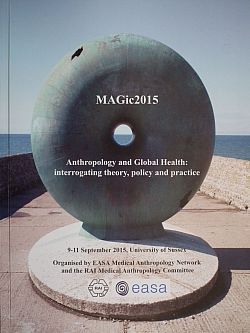 MAGic 2015
MAGic 2015
9-11 September 2015
CORTH is one of the main organisers of MAGic 2015 , an international conference on Medical Anthropology and Global Health hosted by the University of Sussex. We are delighted to have members of the European Medical Anthropology Network (MAN) and the RAI medical anthropology committee on campus for this event. CORTH will also be present at The Sussex Glocal Health Hive 12.30-14.30 on Thursday 10th September (see below).
For more information on the conference see:
http://www.easaonline.org/networks/medical/events/magic2015/
CORTH’s panel at MAGic 2015 reviewed by Mounia El Konti in the American Anthropology Association’s newsletter:
CAR Fall 2015 Newsletter [PDF 659.07KB]
Sussex Glocal Health Hive
10 September 2015
CORTH was present at this networking event, helping to bring together and showcase the wide array of global health related organisations in the Sussex region.
For more information about the Glocal Health Hive event, please see: http://www.sussex.ac.uk/globalhealthpolicy/events/conferences/sussexglocalhealthhive
Population Dynamics and the Sustainable Development Goals
July 2015
Corth members Maya Unnithan and Sajida Ally have contributed to the new report of the UK All Parliamentary Party Group on Population Dynamics and Reproductive Health report launched at the House of Lords on July 8th 2015. The report on Population Dynamics and the Sustainable Development Goals examines the interplay between population dynamics and urbanisation, climate change, migration and conflict. It will be used to guide discussion, funding and programmes of the post 2015 development agenda.
Recommendations from Population Dynamics and the Sustainable Development Goals:
1. Increase funding for family planning and the wider sexual and reproductive health agenda to 10% of official development assistance and 10% of national development budgets
2. The Sustainable Development Goals and targets must not be renegotiated. The draft framework contains goals on healthy lives and gender equality and targets on sexual and reproductive health and reproductive rights, including family planning. It is imperative that these goals and targets are subsequently included in all national development plans
3. Advocate for Sustainable Development Goal indicators at a global level and in national development plans that are reliable and comparable, measure progress in achieving universal access to family planning and the sexual and reproductive health and rights agenda, as listed in the full recommendations. These indicators must be disaggregated by income, gender, age, race, ethnicity, migratory status, disability, geographic location and other characteristics relevant in national contexts
4. Urgently press for further commitments to reduce resource consumption and carbon emissions, and support investment in low-carbon forms of development
5. Amend the UK International Development Act 2002 to mandate the Secretary of State to consider the impact of development assistance on population dynamics, and vice versa
6. Utilise the economic arguments presented in this report to support governments, and finance ministries in particular, to develop appropriate laws, policies and investments that promote universal access to family planning and the wider sexual and reproductive health agenda
7. Legislate and develop policies to combat gender-based violence and invest in long-term planning capabilities with better quality data on population dynamics, contraceptive prevalence and unmet need for family planning
8. Support and invest in secondary education for girls to promote gender equality and empower women
9. Champion universal access to health care and remove unnecessary barriers, particularly for young people and migrant workers
10. Work with conflict, humanitarian, security and climate change groups to promote a holistic approach to sustainable development that ensures universal access to family planning and sexual and reproductive health and rights
Read more: Population Dynamics and the Sustainable Development Goals [PDF 9.17MB]
Reflections on Body Mapping
23 June 2015
In this seminar, hosted by the CORTH Doctoral Forum, Dr Beth Mills (Institute of Development Studies) and Nondumiso Hwelele (University of Cape Town) shared reflections on their use of body mapping to explore women’s embodied experiences of AIDS biomedicine in South Africa.
Read more: Reflections on Body Mapping
CORTH Methods Workshop
27 March 2015, Arts C333, 3 - 5.30pm.
The workshop was hosted by the CORTH Doctoral Forum, and featured presentations from faculty and doctoral students on visual methods, cross-national methodologies, the life narrative method and mixed-methods research.
More details: CORTH Methods Workshop
Abortion workshop inaugurates new Centre for Cultures of Reproduction, Technologies and Health
On 13th and 14th November 2014, the newly-launched Centre for Cultures of Reproduction, Technologies and Health (CORTH) held its inaugural event entitled Re-Situating Abortion: Bio-Politics, Global Health and Rights in Neo-liberal Times. The event brought together an international group of researchers from a diverse range of disciplines as well as practitioners in order to begin a timely conversation about the relationship between abortion, globalisation and neoliberal reform.
Read the report: Abortion workshop inaugurates new Centre for Cultures of Reproduction, Technologies and Health [PDF 442.78KB]
Details of the workshop: Re-situating Abortion: Bio-politics, Global Health and Rights in Neo-liberal Times
CORTH Doctoral Forum
The first CORTH Doctoral Forum took place at the University of Sussex on 16th October 2014
Read the report: Summary of the first CORTH Doctoral Forum [PDF 95.92KB
Reflections on a symposium: Dislocating Masculinity Revisited
The Dislocating Masculinity Revisited symposium took place at the School of Global Studies, University of Sussex on July4th – 5th 2014. It was organised by Andrea Cornwall, Nancy Lindisfarne and Frank Karioris, and included keynotes from Raewyn Connell and Mairtin Mac an Ghaill.
More details: Dislocating Masculinity Revisited
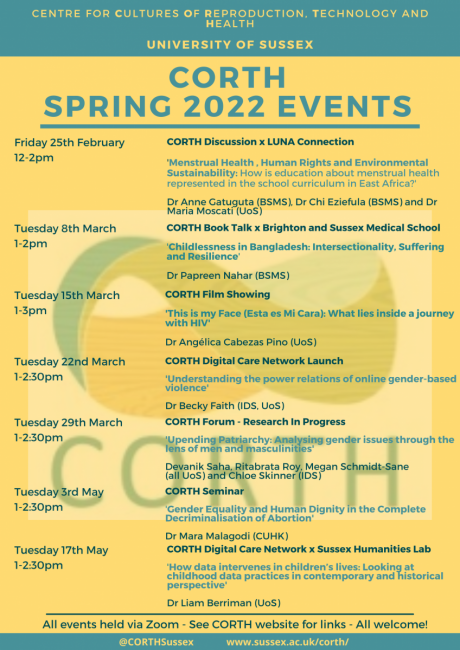
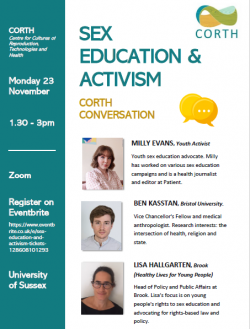
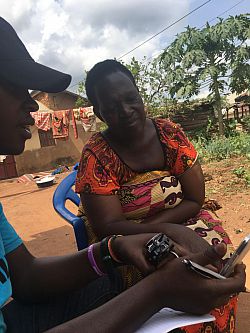 Training a TBA in mHealth in Uganda
Training a TBA in mHealth in Uganda Landscape from the Canadian north
Landscape from the Canadian north